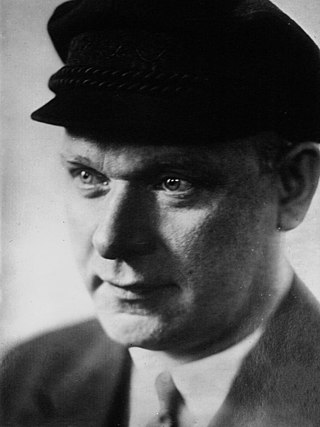
Ernst Johannes Fritz Thälmann was a German communist politician, and leader of the Communist Party of Germany (KPD) from 1925 to 1933.
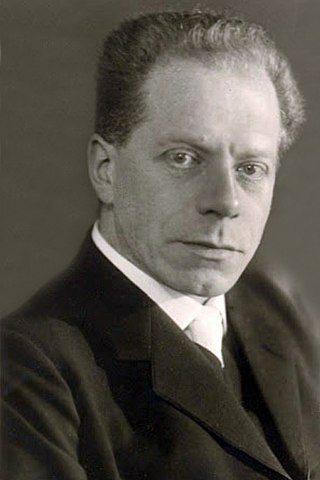
Leonard Nelson, sometimes spelt Leonhard, was a German mathematician, critical philosopher, and socialist. He was part of the neo-Friesian school of neo-Kantianism and a friend of the mathematician David Hilbert. He devised the Grelling–Nelson paradox in 1908 and the related idea of autological words with Kurt Grelling.
The Kreuzzeitung was a national daily newspaper published between 1848 and 1939 in the Kingdom of Prussia and then during the German Empire, the Weimar Republic and into the first part of the Third Reich. The paper was a voice of the conservative upper class, although it was never associated with any political party and never had more than 10,000 subscribers. Its target readership was the nobility, military officers, high-ranking officials, industrialists and diplomats. Because its readers were among the elite, the Kreuzzeitung was often quoted and at times very influential. It had connections to officials in the highest levels of government and business and was especially known for its foreign reporting. Most of its content consisted of carefully researched foreign and domestic news reported without commentary.
The Vossische Zeitung was a nationally known Berlin newspaper that represented the interests of the liberal middle class. It was also generally regarded as Germany's national newspaper of record. In the Berlin press it held a special role due to the fact that by way of its direct predecessors it was the oldest newspaper in the city. The name went back to Christian Friedrich Voss, who was its owner from 1751 to 1795, but Vossische Zeitung became its official name only after 1911. It ceased publication in 1934 under pressure from the Nazi state.

Gruner + Jahr is a publishing house headquartered in Hamburg, Germany. The company was founded in 1965 by Richard Gruner, John Jahr, and Gerd Bucerius. From 1969 to 1973, Bertelsmann acquired a majority share in the company and gradually increased it over time. After 2014, the company was a fully owned subsidiary of the Gütersloh-based media and services group. Under the leadership and innovation strategy of Julia Jäkel, Gruner + Jahr evolved into a publishing house producing cross-channel media products for the digital society.
Walter Frank, also known by the pseudonym Werner Fiedler was a Nazi historian, notable for his leading role in anti-Semitic research.

The New Yorker Staats-Zeitung, nicknamed "The Staats", claims to be the leading German-language weekly newspaper in the United States and is one of the oldest, having been published since the mid-1830s. In the late 19th century, it was one of New York City's major daily newspapers, exceeded in circulation only by the New York World and the New-York Tribune. Among other achievements, as of its sesquicentennial anniversary in 1984 it had never missed a publication date, thereby laying claim to the title of being continuously published longer than any other newspaper in America.

Illinois Staats-Zeitung was one of the most well-known German-language newspapers of the United States; it was published in Chicago from 1848 until 1922. Along with the Westliche Post and Anzeiger des Westens, both of St. Louis, it was one of the three most successful German-language newspapers in the United States Midwest, and described as "the leading Republican paper of the Northwest", alongside the Chicago Tribune. By 1876, the paper was printing 14,000 copies an hour and was second only to the Tribune in citywide circulation.
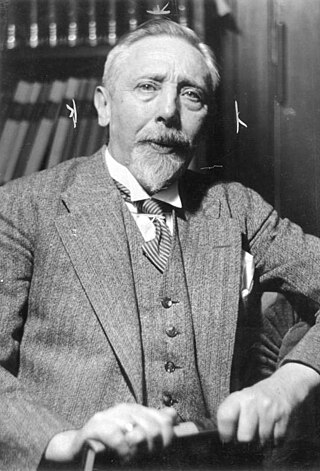
Hermann Gerhardt Karl Oncken was a German historian and political writer. He was one of the most notable historians of pre-Nazi Germany.
Margret Antonie Boveri was one of the best-known German journalists and writers of the post-World War II period. She was a recipient of the German Critics' Prize and the Bundesverdienstkreuz.
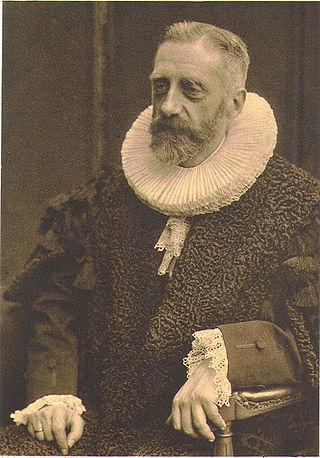
Werner von Melle was a mayor and senator of Hamburg, as well as a jurist. Melle, who held multiple doctorates, also served on the first board of trustees for the Hamburg Scientific Foundation.
The Theodor Wolff Prize is a German journalism prize. It has been awarded annually since 1962 in five categories, equal prizes of €6,000, by the Federal Association of German Newspaper Publishers. In addition, at irregular intervals, journalists are awarded the Theodor Wolff Prize for their life's work.
The following is a timeline of the history of the city of Hamburg, Germany.

"Reisebriefe von Hermann Raster: mit einer Biographie und einem Bildniss des Verfassers" is a biography and collection of travel essays by German-American editor and politician Hermann Raster. It was published posthumously in 1891. The novel was accredited to its subject and the author of the essays, Hermann Raster, though the introduction and biographer remain unknown. The essays chronicle the life travels and experiences of Raster, who was a Forty-Eighter best known for being Editor-in-Chief of the Illinois Staats-Zeitung and Collector of Internal Revenue for the First Illinois District. He was a correspondent for several German newspapers in America and an ardent abolitionist before and during the American Civil War.
Lying press is a pejorative and usually dishonestly disparaging political term used largely for the printed press and the mass media at large.

Jens Hacke is a German political scientist and author.
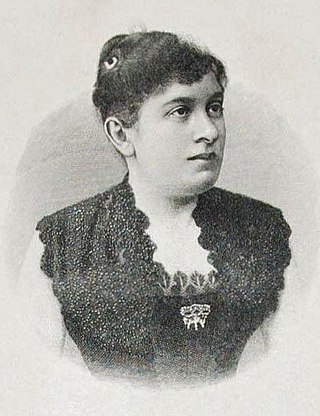
Ulla Wolff-Frankfurter, also known by the pen names Ulla Frank and Ulrich Frank, was a German Jewish playwright, novelist, and journalist.
The Oberappellationsgericht der vier Freien Städte, since 1867 the Oberappellationsgericht der Freien Hansestädte, seated in Lübeck was an appeals court of the German Confederation and the North German Confederation with territorial jurisdiction for Bremen, Frankfurt, Hamburg and Lübeck. Frankfurt was removed from the court's jurisdiction in 1867 after its annexation by Prussia. In 1870 the court lost its subject-matter jurisdiction for commercial law to the Reichsoberhandelsgericht and was altogether abolished in 1879. The court was considered to be the most influential German court of its time due to its exemplary combination of theory and practice.
The Hamburger Anzeiger, in circulation 1922–1957, was a daily newspaper for Hamburg and its neighbouring cities, which were incorporated in 1939.










